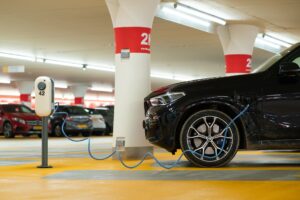With Gas prices glug-glugging to new highs and many customers heading back to offices, demand for electric vehicles is growing fast. For new owners of electric vehicles, and those who are seriously considering making a change, a central characteristic of EVs is also their most mysterious: that big, car-moving battery.
Some people believe that EVs are just as polluting as cars that have combustion engines because they run on electricity that is generated by natural gas, oil, or coal-fired power plants. But with no internal combustion engine, EVs require no gasoline and no messy oil changes. Air pollution in urban areas is reduced when fewer cars are emitting exhaust fumes on the streets. There is, therefore, no doubt that EVs are less polluting than their gas or diesel-powered equivalents.
While EV enthusiasts will give you endless tips on good charging habits and extending the life of your new EV’s battery, we are going to give you an industry expert point of view to some of the most usual questions; Qichao Hu, an alum of Harvard and MIT and founder of a battery research company and supplier to the EV (Electric Vehicles) industry.
The EV movement, Hu says, has been “like a rocket launch. Since the beginning of the pandemic, people saw the success of Tesla. Some car companies, like Honda, have even closed their engine-research departments.” Herewith we give you some answers to most shared questions and concerns.
What Type of Batteries Do EVs Use?
All the EVs on the market today use lithium-ion batteries, like the kind in your mobile phone or laptop. But there are two distinct types:
- nickel-free LFP (lithium-iron phosphate) batteries and,
- high-nickel NCM (containing nickel, cobalt, and manganese oxide.)
For instance, some Tesla Models use nickel-free LFP, which is typically cheaper and safer, with a long battery life: “Hundreds of thousands of miles,” he says.
Some long-range cars use this type of battery, as would electric taxis and buses that need to be low-cost and have a long-life span. More premium vehicles would use high-nickel compositions, which can be pricier.
Do All EV Batteries Behave the Same Way?
Here’s where things get complicated. The same battery could have a completely different life span or performance, depending on the vehicle it is used in.
“Different cars in unique designs, different price ranges, different users and behaviours … it’s hard to say one car is better than the other car because of all these factors. From the battery perspective, it is just those two camps, nickel-free LFP or high-nickel NCM.”
Can we Overcharge an EV Battery?
Yes, absolutely. Some EVs will notify you when you’ve charged beyond your daily driving limits. “Definitely across the board you don’t want to fully charge it or fully deplete it,” Hu says. “You want to avoid below 10 percent and more than 90 percent. You don’t want to go from fully charged to fully empty.”
Not unlike mobiles, EVs are getting smarter about managing that issue intelligently and helping you avoid shortening your battery’s life with either too much charging or too much battery depletion.
Does the Way I Drive Impact Battery Life?
Hard yes. Driving faster in wintry weather can significantly cut the battery range. “At high power and low temperature, the amount of a (battery) capacity is much lower.”
Our recommendation: Don’t push the engine too hard or drive in extreme temperatures without expecting a drop in driving range.
Should we Worry About Charge Cycles?
We shouldn’t worry too much about charge cycles, which are the number of times a rechargeable battery can be charged and depleted in its life span. Car manufacturers adjust the way the car utilizes its battery as the vehicle ages, “based on the time, the temperature, the driving behaviour; it’s all done automatically by the car software.”
The process is happening constantly on most EVs, with battery health data sent anonymously back to a central analysis system. The system determines if the battery is in good health or whether it’s in early-stage danger mode and might need healing protocols.
As the battery degrades over time, your EV’s display should warn you when there is a problem or if the battery is nearing the end of its life span.
When is the Next Battery Breakthrough?
Huge battery innovations usually happen about every 30 years, according to Hu, and the good news is we are about due for the next evolution.
He believes that will be lithium-metal batteries, which are a cousin of lithium-ion batteries and will provide “higher intensity, higher range, and lower cost.” AI and other technologies will also help improve the batteries themselves, as well as performance and safety. It will be a combination of new hardware breakthroughs and software.”
And the costs of battery tech are likely to fall with increased recycling of the materials that go into batteries, such as lithium, cobalt, and copper.
Ford, Kia, and Volvo, for instance, are some of the companies that recently joined a program to begin EV battery recycling. In the future, you can think of the car as the mine. We’ll be less dependent on whatever happens with global raw material price.
Long life to Batteries
The lead-acid batteries that are used in cars with internal combustion engines are already highly recyclable. Most countries see a recycling rate of more than 90% for these batteries.
Modern EV batteries are built with an even higher proportion of recyclable materials, and they are also highly recyclable. Additionally, EV batteries last for years, and many of them will have a life well beyond that of the vehicle.
While the battery in your smartphone only lasts a couple of years (that’s because you charge it every day). The average EV driver charges their car a few times a month.
EVs are also designed to charge smarter. When they are charged, they only replenish the depleted cells, which distributes the load across the thousands of cells that make up a battery pack.
The standard EV battery warranty should be valid for up to 160,000km, so you can be sure your EV will still be going strong for years to come.

Have any further questions, want to install an electric car recharging station at home or near work?
Get in touch with us today – https://sototechnic.com
Or email us on info@sototechnic.com





